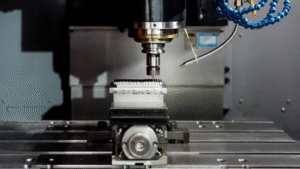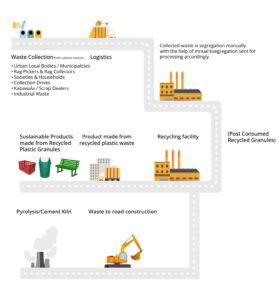
The rapid rise of AI tools in the past few years has led to some hot debates: Will AI replace software developers?
Well, as per experts, the answer is a big fat NO.
From generating code to automating tests, AI is making its mark on almost every part of the developer’s workflow.
But the million-dollar question is not simply whether AI can generate code; it is: will it ever replicate the actual problem-solving, design thinking, and innovation that human developers bring to the table?
This blog explores the roles of AI in software development today. You will also learn –
- How AI change the software development industry?
- AI vs human developers
- Role of AI in software development
- Benefits and risks of AI in software engineering
- Future of software development with AI
- Software development best practices
Let’s begin.
The Role of AI in Software Development
AI is increasingly becoming a part of software development technology through the automation of tasks like debugging and code recommendations. Software such as GitHub Copilot, Amazon CodeWhisperer, and Tabnine leverages large language models (LLMs) to write lines of code, discourage repetitive code, and help developers be more productive.
All of these tools exemplify AI-based software development, a growing field where machine learning models predict and automate developers’ next steps.
What’s significant here is developer productivity with AI. Developers are constantly constrained by boring, repetitious, or boilerplate code.
AI will allow them to take the ideal steps towards architecture, user experience, and working on more complex problems, which require actual human intervention and strategy. AI alone cannot provide all of the necessary contextual knowledge to create a holistic software solution.
How AI Is Changing the Software Development Industry
The impact of AI on developers is extremely complicated. Developers are not being replaced, but are being repurposed. Meaning, AI will change how developers work, and developers will now have to work through and reassess their development knowledge beyond just syntax and logic.
This change highlights how AI is changing the software development industry. It’s reshaping job descriptions, making it important for developers to hone their skills, leverage AI into their development process, and blend technical understanding with strategic approaches.
AI vs Human Developers: A Symbiotic Relationship
Comparing AI and human developers is not about superiority; it’s about suitability. AI is great for automation, speed, and identifying errors. However, it struggles with ambiguity, ethical considerations, and innovative ideation. For these reasons, human developers are fundamentally better and stay a step ahead.
Human developers bring unique qualities in:
- Understanding the user needs and translating those needs into features.
- Making trade-off decisions that impact long-term scalability.
- Coaching, mentoring, managing, and collaborating across disciplines.
While AI can assist the coding process, it cannot mimic the full SDLC thinking and interpersonal competencies provided by software developers.
The Role of AI in Software Development
The role of AI in software development expands into different dimensions throughout the software development lifecycle. These include:
- Requirements Analysis: The role of NLP models can assist with translating the client’s inputs into user stories.
- Design: AI can recommend architectures given previous projects.
- Coding: Tools such as Copilot can offer collaborators suggestions on certain syntax.
- Testing: Sooner or later, AI can auto-generate test cases and anomalies.
- Maintenance: Predictive models flag bugs before users even report them.
It is obvious here that AI is more of an augmented process rather than a process that displaces software developers or replaces them altogether.
Benefits and Risks of AI in Software Engineering
With every breakthrough comes a responsibility. Therefore, a proper assessment of both the benefits and risks of AI in software development becomes crucial. Here are the benefits and challenges that you should know about.
Benefits:
- Reduces development time.
- Lowers human error in repetitive tasks.
- Provides development opportunities for more non-tech users through no-code/low-code platforms.
Risks:
- Over-reliance on these systems could impact core coding development and maintenance skills.
- Generated code may inadvertently contain errors and security vulnerabilities.
- Ownership becomes a grave issue with AI-generated source code.
To negate these challenges, it is essential to strive for that right balance in a time of fast adoption of AI tools in software development.
Future of Software Development with AI: Co-Creation, Not Competition
The future of software development with AI will involve co-creation. As AI becomes an integral part of the developer’s toolkit, it will be universal, much like IDEs, version control systems, etc.
The future of coding with AI may involve:
- Hybrid teams, which involve AI agents and developers working together
- Personalized AI assistants, which can remember context, coding styles, and a person’s preferences (quite similar to Siri)
- Ethics around responsible/transparent use of AI in development.
In this AI-driven landscape, machine learning in development will help create tools that learn and adapt from user interactions, enabling predictive and contextually aware software development environments.
Software Development Best Practices in the Age of AI
Improving best software development practices and adapting to AI involves the following key requirements:
- Embed AI tooling into continuous integration and development pipelines.
- Use AI in programming to improve performance and security during runtime.
- Establish procedures for the review of AI-generated code.
Applying these best practices will ensure teams stay agile, efficient, and aligned with business goals in an AI-assisted development environment.
Conclusion
There’s no question that AI has radically changed the way we think about software development.
But to say AI will replace human developers is foolish – probably not now.
In the future? Uncertain.
AI is simply great at automating and analyzing patterns. But it can’t expand critical thinking, empathy, and the creative parts that developers bring into the picture. The future of coding and AI is holistic in nature, not competitive – both developers and the industry are better associated with AI as a co-pilot, not a replacement.
When using AI as a co-pilot, developers, custom software application development companies, and maybe even ultimately the industry, will get opportunities to expand further than they have had previously with innovation. Those who engage in the holistic relationship that exists between humans and AI will have the best opportunities to lead the next age of digital solutions.




